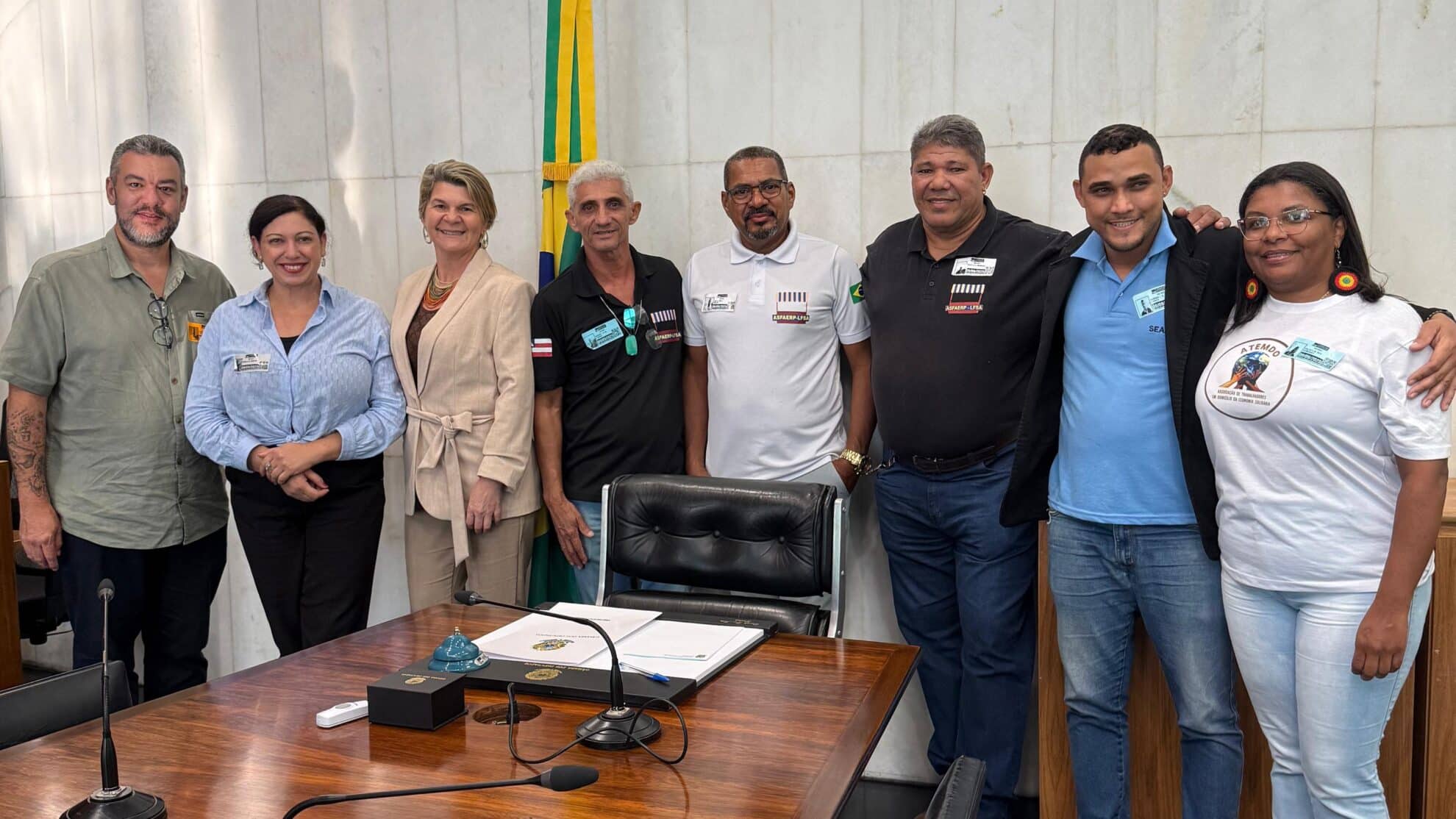After a year of negotiations in Brazil, the Parliamentary Front in Defence of Workers in the Informal Economy became official on September 9.
Hugo Motta, president of Brazil’s Chamber of Deputies, signed the official creation of the Parliamentary Front. This is a historic achievement for the Intersectoral Collective of Workers in Informal Employment, the Central Workers’ Union and WIEGO. The Parliamentary Front's objective is to monitor and improve federal legislation on informal work, as well as to promote new regulations in areas not yet regulated. This agenda responds to ILO Recommendation 204 and was reaffirmed by Brazil at the 2025 International Labour Conference.
The next step will be the establishment of a Dialogue Table, with the participation of the General Secretariat of the Presidency of the Republic, the Ministry of Labour, the leadership of the new Parliamentary Front, and ILO Brazil. There, a joint work plan will be defined to continue this process.
Although the road to full formalization is long, this progress marks a fundamental milestone in Brazil. The sectors that make up the Collective have already presented joint proposals that will serve as a basis for continuing to build a framework of labour rights that takes into account the diversity and heterogeneity of workers in informal employment in Brazil.
Who is the Collective?
Since August 2022, Brazil has been building the Intersectoral Collective of Workers in Informal Employment, made up of six organizations representing five labour sectors. The initiative, promoted by WIEGO in coordination with the Central Workers’ Union, seeks to raise the profile of those working in informal conditions, promote the transition to formal employment with rights, and demand public policies that guarantee greater social justice.
The Collective is made up of:
- ATEMDO (Association of Domestic Workers in the Solidarity Economy)
- CUT Brazil (Central Workers' Union)
- FENATRAD (National Federation of Domestic Workers)
- MNCR (National Movement of Waste Pickers in Brazil)
- UNICAB (National Union of Street and Market Vendors of Brazil)
- SEAMBAPE (Union of App-Based Delivery Workers by Motorcycle and Bicycle in Pernambuco)
- SIMTRAPLIRS (Union of App-Based Drivers of Rio Grande do Sul)
These sectors represent millions of people who sustain daily life in cities, but who still face precarious conditions and a lack of labour protection.
The Collective's Demands
In 2023, the Collective presented a joint document with specific proposals to guide this Dialogue Table and the development of a national policy for workers in informal employment. Among the proposals are:
- Recognition and application of ILO Recommendation 204 at the municipal level.
- Ratification and implementation of ILO Conventions 177 (home work), 189 (domestic workers) and 190 (violence and harassment).
- Creation of a regulatory framework for social, labour and pension protection, reversing legal setbacks and guaranteeing free access to labour justice.
- Specific policies for job creation and income generation with a decent minimum wage.
- Measures against the criminalization of and violence towards workers.
- Actions for gender equality and against racial discrimination.
- Sectoral proposals, such as defending the work of waste pickers against waste imports, recognizing labour rights and minimum rates for delivery workers and drivers for digital platforms.
A Framework of International Rights and Commitments
The Collective's work is part of a broader framework of international commitments. In a joint statement in September 2023, Brazilian President Luiz Inácio Lula da Silva and U.S. President Joe Biden reaffirmed the need to promote decent work and recognize the central role that workers play in building more democratic and just societies.
This commitment is linked to Article 23 of the Universal Declaration of Human Rights, which recognizes the right of everyone to decent work, fair conditions and sufficient remuneration to ensure a life of dignity.
It also responds to ILO Recommendation 204, which establishes the urgency of public policies that accelerate the transition from the informal economy to the formal economy with rights, within a framework of collective bargaining.
Globally, 58% of workers are in informal employment, and more than 4 billion people do not have access to social protection. In Latin America and the Caribbean, one of every two people work in informal employment.
A Global Perspective
This recent victory in Brazil adds to the struggles that workers in informal employment are waging around the world. It reinforces the need to advance public policies that recognize their essential contribution to society and guarantee their rights.
